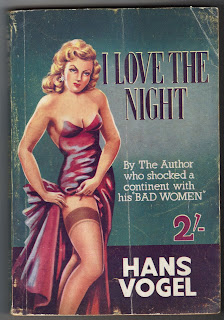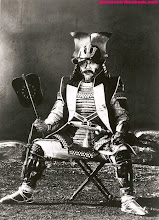
I seem to be on something of an 'art' kick at present, following on from Bergman's 'Faith' trilogy of films.
Perhaps both are a necessary counterpoint to the rash of crime novels and pulp fiction stories that I read in the previous two weeks.
But, which or whether, I've just decided to watch my Patrice Chereau DVD box-set of 'The Ring', ideally over four consecutive nights
(I'm not sure whether that is the preferred approach by Wagner groupies and afficionados).
Up until 20 years or so ago Wagner was only ever about 'The Ride of the Valkyries' for me, from that famous scene in 'Apocalypse Now', and the notion of 'Wagnerian doom'.
That is until I was living in London in the early 1990s, and got to hear live broadcasts of various of the opera, courtesy of BBC Radio Three.
Although doomladen chords predominated, I was pleasantly stunned by the great beauty of much of the work.
I didn't manage to catch the entire cycle during those BBC broadcasts, but I heard enough to shell out on two complete CD sets; one studio, and one live production
(at the time,the most acclaimed live prouduction, by Karl Bohm)
To date, though, I've yet to listen to the entire work, never mind over an abbreviated, and consecutive, period of time.
I subsequently acquired a number of other Wagner operas, - and opera by the two other giants of the musical form, Verdi and Mozart, - but I think 'Parsifal', which I have listened through completely a number of times, may be his most beautiful piece of work, musically speaking.
This viewing, and listening, I see as not just an opportunity to see one of the acclaimed theatrical productions of 'The Ring', but possibly as a preliminary step to attending a complete Ring cycle staging, - whether at Bayreuth, London's Covent Garden, or some other World Opera House equipped to do it full justice.
As for Patrice Chereau himself: up until a couple of years ago I had never heard of him, never mind his production of 'The Ring'; what led me to him was that while browsing the internet for DVD bargains, I noted that he had made a film, 'Gabrielle', which is based on a story by one of my favourite fiction-writers, Joseph Conrad; I watched the film shortly after purchase, which is a mark of how much I was looking forward to it, - and immediately loved it.
Which caused me to seek out more Chereau films.
Which brings me, full circle, to 'The Ring'




